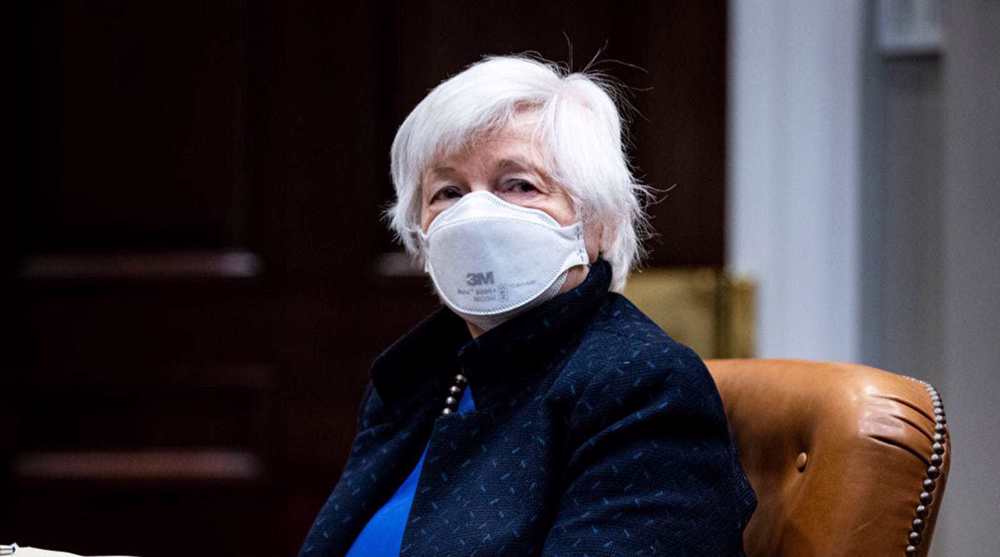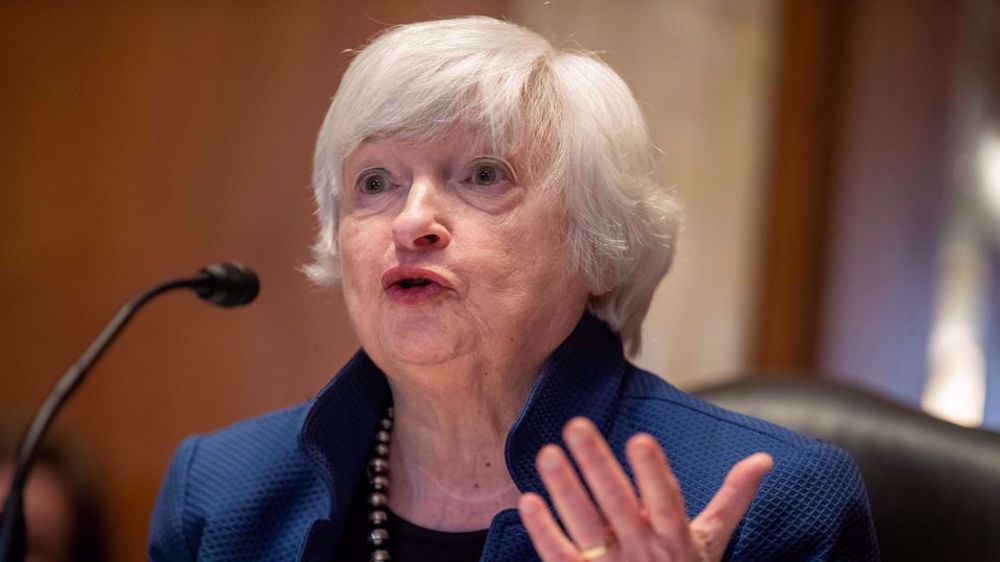Janet Yellen warns Congress has just three weeks before US defaults on debt
US Treasury Secretary Janet Yellen warns Congress that unless lawmakers raise or suspend the debt limit by October 18, the United States risks default on the national debt.
“At that point, we expect the Treasury would be left with very limited resources that would be depleted quickly. It is uncertain whether we could continue to meet all the nation's commitments after that date,” Yellen wrote.
While Yellen called the date the agency’s “best estimate” as of now, she noted “the federal government's cash flows are subject to unavoidable variability.”
“For example, the government's daily gross cash flow (excluding financing) over the past year averages nearly $50 billion per day and has exceeded $300 billion. As a result, it is important to remember that estimates regarding how long our remaining extraordinary measures and cash may last can unpredictably shift forward or backward,” the former Federal Reserve chairwoman wrote.
She added that uncertainty underscores the “critical importance of not waiting to raise or suspend the debt limit.”
Yellen sent identical letters to Speaker Nancy Pelosi (D-Calif.), House Minority Leader Kevin McCarthy (R-Calif.), Senate Majority Leader Charles Schumer (D-N.Y.), and Senate Minority Leader Mitch McConnell (R-Ky.).
Congress has so far failed to raise America’s $28 trillion debt ceiling amid a standoff between Democrats and Republicans, who have refused to support raising or suspending the current ceiling.
Yellen has said that the crisis triggered by default “would compound the damage of the continuing public health emergency,” plunge the US economy back into recession and leave it a “permanently weaker nation.”
She also described economic damage that would fall on consumers through higher borrowing costs and lower asset prices.
Democrats have tried to insist Republicans work with them to raise or suspend the debt limit.
In her letter on Tuesday, Yellen sought to put pressure on lawmakers to act with a sense of urgency to resolve the matter, warning of the dangers of waiting until the eleventh hour.
“We know from previous debt limit impasses that waiting until the last minute can cause serious harm to business and consumer confidence, raise borrowing costs for taxpayers, and negatively impact the credit rating of the United States for years to come,” Yellen wrote.
“Failure to act promptly could also result in substantial disruptions to financial markets, as heightened uncertainty can exacerbate volatility and erode investor confidence,” she added.
If the Treasury Department could not avoid default without borrowing more money, the United States would fail to pay its debts. Such a scenario would send shockwaves through the US financial system.
Yellen called on Congress for months to raise the debt limit. She has warned that a delay could "cause irreparable damage to the US economy and global financial markets."
Since August, she has asked Congress to make Treasury able to pay debts approved by previous presidents and congressional majorities.
"Waiting until the last minute to suspend or increase the debt limit can cause serious harm to business and consumer confidence, raise short-term borrowing costs for taxpayers, and negatively impact the credit rating of the United States," Yellen wrote.
"At a time when American families, communities, and businesses are still suffering from the effects of the ongoing global pandemic, it would be particularly irresponsible to put the full faith and credit of the United States at risk."
But Republican members of Congress have refused to raise the debt ceiling unless spending cuts and debt reduction programs are attached.
Iran warns against US-Israeli plot to weaken Muslims, dominate region
VIDEO | Public uproar in US against Israeli regime
‘Ghost town’: 70% of Jabalia buildings destroyed by Israel
Mother’s Day: Sareh Javanmardi’s inspiring journey as Paralympic champion and mother
Russia downs over 40 Ukrainian drones as Putin vows 'destruction' on Kiev
VIDEO | Yemen: A bone in Israeli neck
D-8’s role in Iran’s economy after Cairo summit
China slams US as ‘war-addicted’ threat to global security











 This makes it easy to access the Press TV website
This makes it easy to access the Press TV website